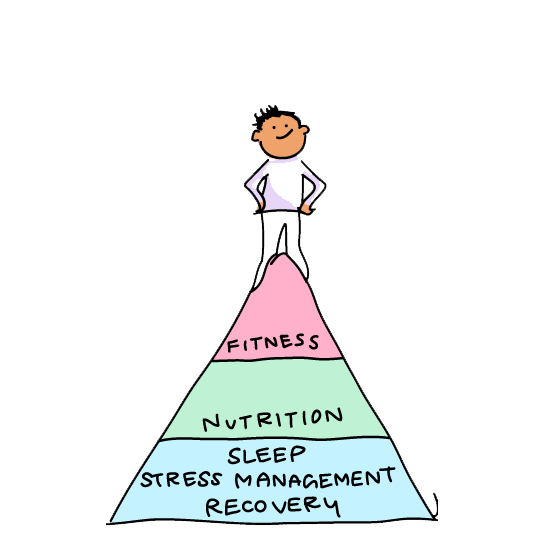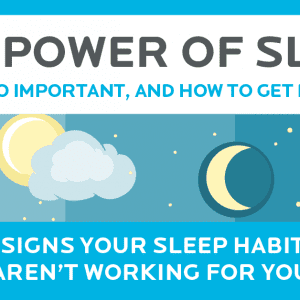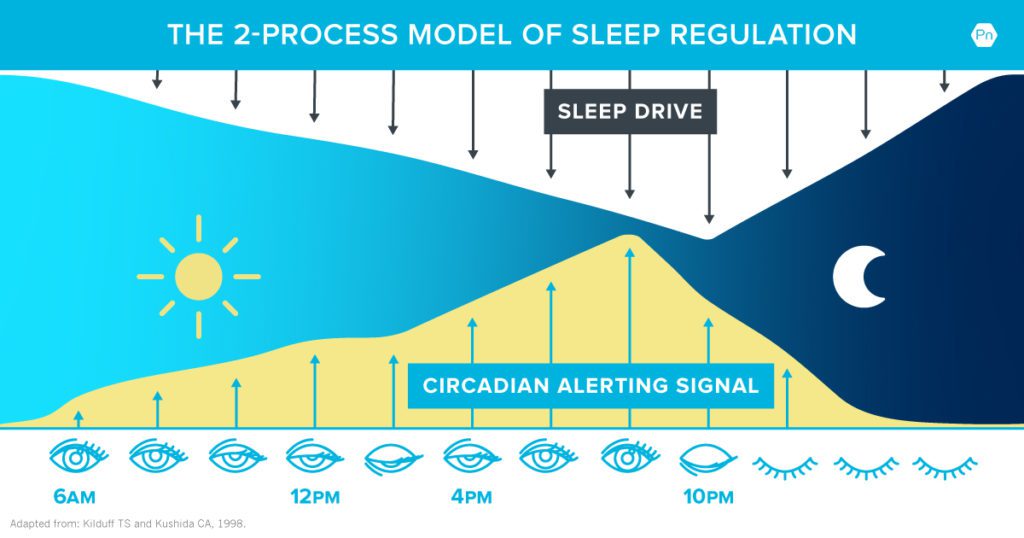We’re not going to tell you all the reasons you need a digital detox.
Because suggesting you part ways from your smartphone is like suggesting you stop driving your car.
Like your car, your phone is merely a tool that serves a function.
(Okay, about 359 functions, give or take a few hundred dozen).
Your car is capable of doing serious harm: impaling you on the steering column, stranding you on a deserted road at 3 am, taking you to the drive-through window of that fast food restaurant you swore you’d never again visit.
Yet (aside from a few enthusiastic bikers and walkers) most folks have never contemplated going on a car detox.
Because that wouldn’t be practical—nor necessary—for many car owners.
It’s the same with your phone.
Your phone isn’t an evil device that inflicts anxiety, distraction, or insomnia without your consent.
In fact, your smartphone is just as capable of improving your health as it is of messing with it.
The difference lies not in the phone itself, but how you use it.
By following the five-step process outlined in this article, you’ll learn how to use your phone to boost your health, upgrade your sleep, and even grow closer to friends and family.
Your personal health determines your phone health.
Many people believe it’s their phone that erodes their relationships, ability to focus, and overall health.
This, of course, is understandable. After all, various studies have linked smartphones to sleep problems, distraction, and something called nomophobia.1,2 (More about that below.)
Thing is, physical, social, and emotional health tends to unravel first, leading to phone overuse. Which, in turn, results in poorer health.
In other words, there’s a vicious circle. Maybe you…
▶ don’t know how to connect with your surly teenager, so you connect with your phone instead, which takes time and energy away from your teen, allowing your relationship to worsen.
▶ feel way too stressed about work, so you compulsively check your email, which leads to more work stress.
▶ lack fulfilling hobbies, so you default to whatever digital game will hold your interest, which gobbles up the time you could be using to identify new hobbies.
▶ Feel too anxious to sleep, so you reach for your phone to distract yourself from the anxiety, but then your phone also keeps you awake.
You get the idea.
You could solve any of the above problems without your phone—say, with in-person family therapy, a heart-to-heart with your boss, an art class, or a few sessions with a sleep coach.
But you could also solve them with your phone.
You might connect with that surly teen over funny cat videos. How about a deep breathing app to help you put a period at the end of your workday?
Maybe you could learn to play the guitar by attending that free online university known as YouTube.
Or, on those nights when you’re plagued by anxiety, how about using your phone to listen to a Yoga Nidra or self hypnosis session?
What is nomophobia, and do you have it?
Nomophobia is a fear of losing touch with your smartphone. The name is short for “no mobile phone phobia.”
And yes, it’s a real thing that physicians diagnose.1
Though you can’t diagnose yourself just by reading this or any other article on the web, the following questions can help you to figure out whether to explore nomophobia with your doctor or therapist.
Do you experience intense anxiety if you can’t check your phone?
What’s it like when you have to flip on airplane mode during a flight? Do you find yourself continually fiddling with your phone, nervously waiting until you can connect to the plane’s wifi?
Or if you’ve ever realized, too late, that you either left your phone at home or forgot to charge it, what happened to your mood? Did it plummet in a matter of seconds?
Do you know how to calm, comfort, or entertain yourself without a device at your fingertips?
Say you’re waiting at a doctor’s office, but can’t use your phone. What would you do to pass the time?
If you answered “yes” to the first question or “no” to the second, you might want to bring up the topic with your healthcare provider.
How to turn your phone into a health hero
Use this five-step process.
Step 1: Think about what matters.
Phone frustration tends to arise when someone’s identity (who they are) and their values (what matters to them) don’t match up with how they spend their time and energy.
Let’s say you see yourself as a “family person” who deeply values spending time with your kids. In that case, spending each evening sucked into your screen means you’re not doing what you most value.
And that’s not going to feel good.
To solve this conflict, you first need to identify it.
Our Identity Values and Goals chart can help. If you still feel lost, here’s a fun way to figure it out. Ask yourself:
What makes you angry?
Anger can be a sign your values have been violated. The table below lists a few examples.
| I got mad when… | So _________ is important to me |
|---|---|
| Someone lied to me. | Honesty |
| I got ripped off. | Fairness |
| My boss asked me to work late and miss my son’s game. | Family |
| Someone was rude to me. | Courtesy |
Step 2: Take an honest look at where you spend your time and energy.
Are you putting enough time and energy toward what you value?
Heads up: Your time, energy, and attention will always be limited.
When you say “yes” to what you value, you’ll probably have to say “no” to something else.
Step 3: Bridge the gap between your phone and your values.
We’re going to make a wild assumption that you’re not putting enough time and energy into what you value.
Because, if you were, you wouldn’t be reading this article.
Now that you’re aware of that contradiction, consider one or more of the following questions with curiosity.
▶ When does using your phone conflict with your values? When does it support them?
▶ Is the phone the most helpful tool for a particular task? How could you take advantage of what it does best?
(For example, if you want to connect with someone, could you actually… gulp… call them instead of just liking one of their posts on social media?)
▶ Are there any circumstances or situations where a smartphone and your identity/values might get along, or work towards the same purpose?
(If you’re learning a new language as part of your identity as “cosmopolitan globetrotter,” could your phone help you do that?)
▶ What are the benefits of your identity and values? What are the benefits of using a smartphone? Do they overlap at all?
▶ Is your phone helping you do the stuff that’s important to you? or is it making it harder to do those things?
You’ll use your answers to those questions to brainstorm solutions (see step 4).
Step 4: Get solution-focused.
In step 3, you probably uncovered certain things that you want to do less or not at all—and others that you’d like to do more.
To make this happen, consider using our “little bit better” coaching approach by brainstorming on two questions:
- What might make it a little bit harder for you to use your phone in a way that conflicts with your values?
Here are a few ideas:
▶ Keep your phone out of reach when you’re trying to focus on an important work project.
▶ Prioritize family time by using an app that automatically turns off notifications during dinner.
▶ Create more time for hobbies by removing social media apps from your phone. (You might instead use them on a computer that you locate somewhere inconvenient, such as the basement.)
- What might make it a little bit easier to use your phone in a way that matches your values?
Some ideas to consider:
▶ Use an app to remind you to video chat with a relative or take short meditation breaks.
▶ Sign up for a recipe-focused email newsletter so you can continually inspire yourself to cook healthy meals.
▶ Build a bangin’ playlist that makes you want to get outside and run, take a dance break, or hit it hard at the gym.
▶ Use an app that tells you about the best walking, biking, and/or hiking trails in your area.
Step 5: Celebrate small wins.
Many of us try to motivate ourselves with the proverbial stick, berating ourselves whenever we fall short of a goal. (Dagnabbit! Just lost another afternoon to arguing with strangers on Twitter! Why do I keep doing this?!)
But we’ve found, in coaching more than 100,000 clients, that the carrot works much more effectively. With that in mind, ask yourself:
How might you reinforce your new approach to using your phone as a tool?
Maybe you:
▶ Congratulate yourself each time you want to pick up your phone for no reason, but don’t actually do it.
▶ Make a game out of beating the “screen time monitoring” on your phone—for instance, can you lower your time spent on some apps (such as whatever you mindlessly scroll) and boost your time on others that you truly value (such the one you use to video call family)?
▶ Play with alternatives, such as using pen and paper to make a to-do list. But use the fancy kind, so it feels special (and the phone feels kinda disappointing in comparison).
The best strategies will vary from one person to another.
So choose something that you (or your client) feel ready, willing, and able to do, erring on the side of something that seems too easy rather than too hard.
Try one action, and see what happens. Think of it as an experiment. It might work. It might not.
Either way, you learn about yourself, which is always a positive.
Keep experimenting like this—testing one small change after another, and celebrating all the small wins, no matter how tiny—until you elevate your smartphone to the superhero status it deserves.
References
Click here to view the information sources referenced in this article.
If you’re a health and fitness pro…
When your clients are stressed and exhausted, everything else becomes a struggle: going to the gym, choosing healthy foods, and managing cravings.
But with the right tools, you can help your clients overcome obstacles like chronic stress and poor sleep—leading them toward the lasting health transformations they’ve always wanted.
PN’s Level 1 Sleep, Stress Management, and Recovery (SSR) Coaching Certification will give you these tools. And it’ll give you confidence and credibility as a specialized coach who can solve the biggest problems blocking any clients’ progress. (You can enroll now in the SSR Certification at a big discount.)




Share